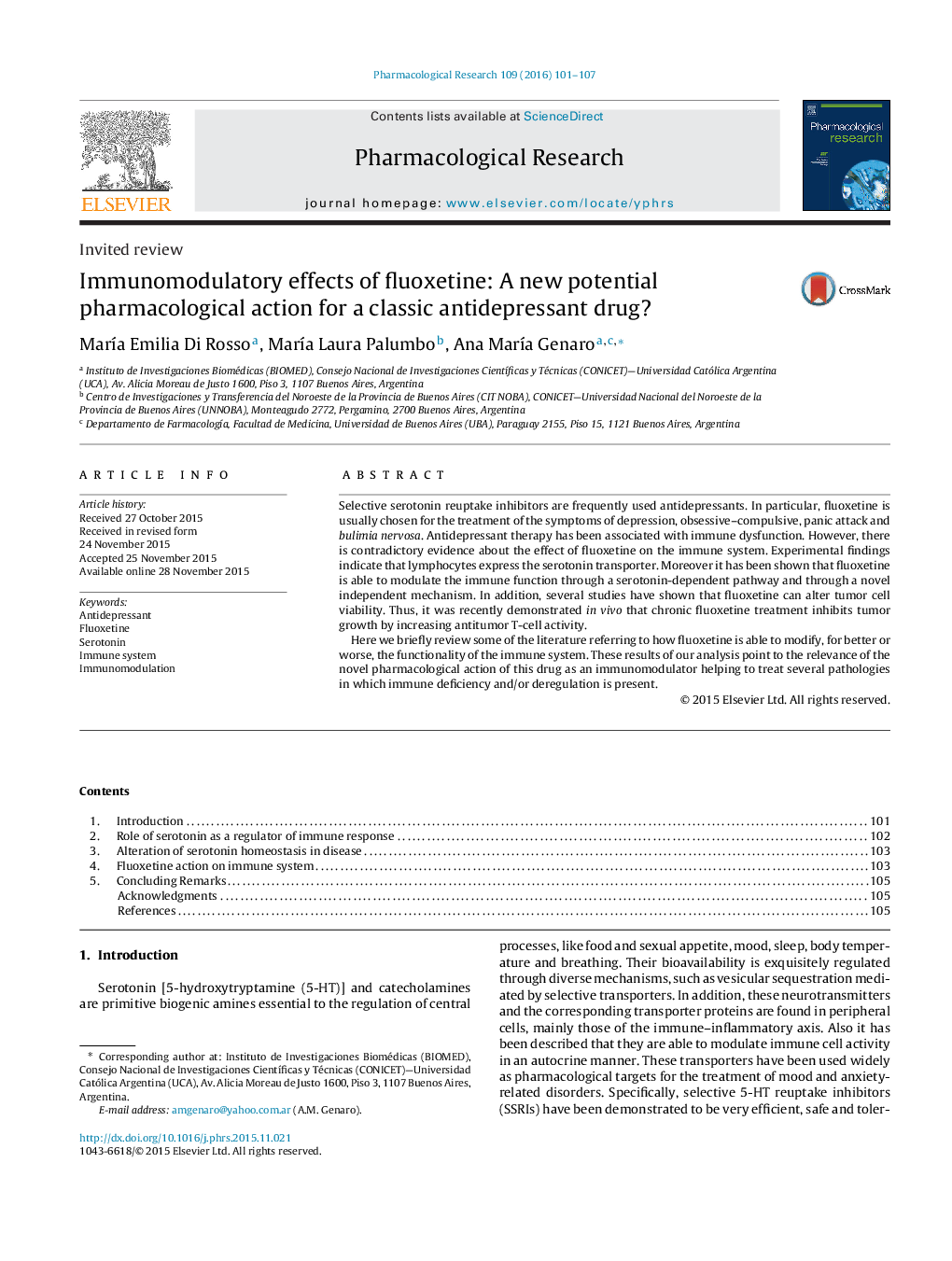| Article ID | Journal | Published Year | Pages | File Type |
|---|---|---|---|---|
| 2562713 | Pharmacological Research | 2016 | 7 Pages |
Selective serotonin reuptake inhibitors are frequently used antidepressants. In particular, fluoxetine is usually chosen for the treatment of the symptoms of depression, obsessive–compulsive, panic attack and bulimia nervosa. Antidepressant therapy has been associated with immune dysfunction. However, there is contradictory evidence about the effect of fluoxetine on the immune system. Experimental findings indicate that lymphocytes express the serotonin transporter. Moreover it has been shown that fluoxetine is able to modulate the immune function through a serotonin-dependent pathway and through a novel independent mechanism. In addition, several studies have shown that fluoxetine can alter tumor cell viability. Thus, it was recently demonstrated in vivo that chronic fluoxetine treatment inhibits tumor growth by increasing antitumor T-cell activity.Here we briefly review some of the literature referring to how fluoxetine is able to modify, for better or worse, the functionality of the immune system. These results of our analysis point to the relevance of the novel pharmacological action of this drug as an immunomodulator helping to treat several pathologies in which immune deficiency and/or deregulation is present.
Graphical abstractFigure optionsDownload full-size imageDownload high-quality image (197 K)Download as PowerPoint slide
